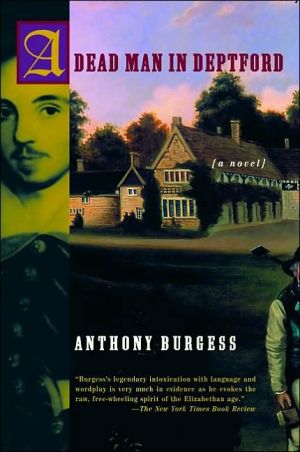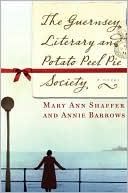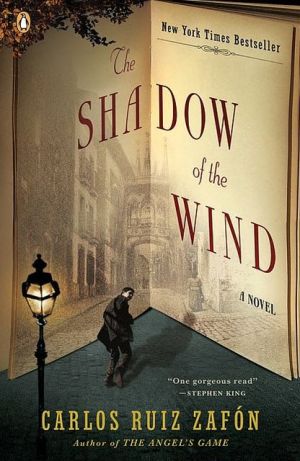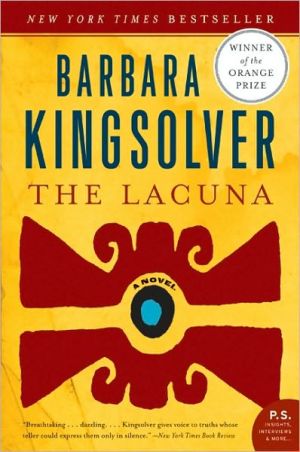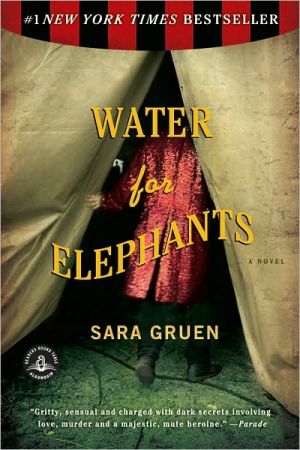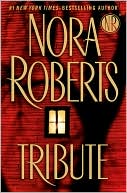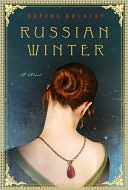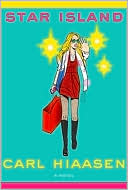Dead Man in Deptford
With A Dead Man in Deptford, Burgess concluded his literary career to overwhelming acclaim for his re-creation of the Elizabethan poet Christopher Marlowe. In lavish, pitch-perfect, and supple, readable prose, Burgess matches his splendid Shakespeare novel, Nothing Like the Sun. The whole world of Elizabethan England—from the intrigues of the courtroom, through the violent streets of London, to the glory of the theater—comes alive in this joyous celebration of the life of Christopher Marlowe,...
Search in google:
With A Dead Man in Deptford, Burgess concluded his literary career to overwhelming acclaim for his re-creation of the Elizabethan poet Christopher Marlowe. In lavish, pitch-perfect, and supple, readable prose, Burgess matches his splendid Shakespeare novel, Nothing Like the Sun. The whole world of Elizabethan England—from the intrigues of the courtroom, through the violent streets of London, to the glory of the theater—comes alive in this joyous celebration of the life of Christopher Marlowe, murdered in suspicious circumstances in a tavern brawl in Deptford more than four hundred years ago.Publishers WeeklyBurgess's last book, published in England two years ago, shortly before the author's death, is a masterly piece of work. It is an extraordinary reflection on the state of American publishing that the novel had to wait so long for publication here, and then be brought out only by a small but enterprising company like Carroll & Graf. Like Burgess's Nothing Like the Sun 30 years ago (arguably the finest novel ever written about Shakespeare), this volume reflects the author's magical sense of language and his deep immersion in the Elizabethan ethos. The story of the short life of brilliant young playwright Christopher Marlowe is ostensibly told by an actor of the time; so perfectly is the period voice caught that it is hard to believe the novelist was not transcribing contemporary documents. Marlowe is seen as a student at Cambridge, soon caught up in the life of a secret agent, shuttling between England and France as the religious struggles of the time reach their apex in the slaying of Mary Queen of Scots. Himself a skeptic, and an active homosexual (frolicking with the young heir of the powerful Earl of Walsingham), Marlowe manages for several risky years to keep his head above the sectarian waters, working when he can at his plays, ever after ``the mighty line.'' Then some of his fellow conspirators, suspicious of him, fabricate a brawl on a spring evening in a tavern and he is slain, still in his 20s. Burgess's command of his material is absolute; he wrote his student thesis, he tells us, on Marlowe and brings a lifetime's linguistic and fictional gifts to this headlong, shining, cruel portrait of a terrifying-but posthumously glorious-age. (May)
\ Publishers Weekly\ - Publisher's Weekly\ Burgess's last book, published in England two years ago, shortly before the author's death, is a masterly piece of work. It is an extraordinary reflection on the state of American publishing that the novel had to wait so long for publication here, and then be brought out only by a small but enterprising company like Carroll & Graf. Like Burgess's Nothing Like the Sun 30 years ago (arguably the finest novel ever written about Shakespeare), this volume reflects the author's magical sense of language and his deep immersion in the Elizabethan ethos. The story of the short life of brilliant young playwright Christopher Marlowe is ostensibly told by an actor of the time; so perfectly is the period voice caught that it is hard to believe the novelist was not transcribing contemporary documents. Marlowe is seen as a student at Cambridge, soon caught up in the life of a secret agent, shuttling between England and France as the religious struggles of the time reach their apex in the slaying of Mary Queen of Scots. Himself a skeptic, and an active homosexual (frolicking with the young heir of the powerful Earl of Walsingham), Marlowe manages for several risky years to keep his head above the sectarian waters, working when he can at his plays, ever after ``the mighty line.'' Then some of his fellow conspirators, suspicious of him, fabricate a brawl on a spring evening in a tavern and he is slain, still in his 20s. Burgess's command of his material is absolute; he wrote his student thesis, he tells us, on Marlowe and brings a lifetime's linguistic and fictional gifts to this headlong, shining, cruel portrait of a terrifying-but posthumously glorious-age. (May)\ \ \ \ \ Library JournalWritten to commemorate the 400th anniversary of Christopher Marlowe's death in 1593, the late Burgess's final book is essentially a novelization of Charles Nicholl's revisionist biography, The Reckoning (LJ 3/1/94). In Nicholl's view, Marlowe was a secret agent paid by spymaster Francis Walsingham to infiltrate the insurgent Catholic underground. However, as a freethinker and a homosexual, Marlowe had little use for Catholics or Protestants and preferred to spend his time promoting atheism and smoking the new drug tobacco, a habit he likened to "buggery of the lungs." Burgess brilliantly evokes the murky world of Elizabethan politics, where even a person's name is a mystery. Marlowe is also known as Morley and Merlin, and an apprentice playwright answers to Shagspaw, Choxper, and Jacquespere. One of this prolific author's finest books, A Dead Man in Deptford is a worthy companion volume to Burgess's classic Shakespeare novel, Nothing Like the Sun (1964). For all collections.-Edward B. St. John, Loyola Law Sch. Lib., Los Angeles\ \ \ From Barnes & NobleA novel that celebrates the life of Christopher Marlowe, murdered under highly suspicious circumstances in a tavern brawl in Deptford, England four hundred years ago. A kaleidoscopic portrait of the most vivid age in British history.\ \
